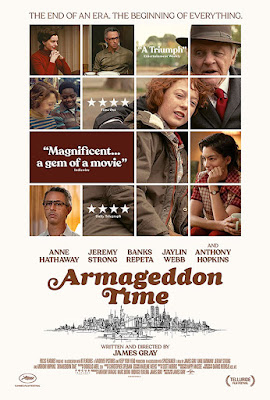Aftersun? I admit I felt an after-shock, once I checked the rave reviews for an art-house film full of weird camera angles, scratchy footage, and little to no plot. Yes, it can be interesting to pan through someone’s vacation videos, looking for clues about relationships and impending traumas. But Aftershock just didn’t seem as fascinating to me as it did to my favorite serious critics, who pronounced it a work of genius by a bright new filmmaker, Charlotte Wells.
Maybe it’s all a matter of watching an ambitious film on a theatre-sized screen. Maybe you need to be in the right place (and not on your living-room couch) to appreciate idiosyncratic artistic choices and stories that hide the characters’ motivations beneath scads of mundane details.
Yes, I was sympathetic to a film about the relationship between a lively 11-year-old girl and her 30-year-old father making up for lost time at a vacation resort. I could see the inherent tensions between them: the dad’s efforts to shield his daughter from his cigarette cravings, his tentative inquiries about her mother back home, the daughter’s budding fascination with the teen-age canoodling going on around her. But the critics’ glib explanation that this is a memory piece, with the now-grown daughter trying to sort through her recollections of a father who has come to a bad end, led me to wonder how they’d sorted out the film’s few clues and come to such a definitive explanation. (Question: was it all laid out for them in the film’s press packet?) I like sleuthing beneath the surface as much as the next moviegoer, but my main feeling here was one of frustration.
Speaking of fathers, I’ve also just watched James Gray’s semi-autobiographical Armageddon Time, in which a middle-class New York kid discovers that life is not always fair, that when it comes to trouble his African-American buddy will always be getting the short end of the stick. Most reviews I’ve seen have focused on the story’s racial elements, as well as the kid’s deep emotional connection with an old-world Jewish grandfather who knows from discrimination. That grandfather is played by Anthony Hopkins, in an unlikely but surprisingly convincing piece of casting. But Gray’s well-realized story also draws sharp portraits of young Paul Graff’s parents.
It is striking to see Anne Hathaway, so often a perky ingenue, play (very nicely) a mom, one who’s trying awfully hard to hold together a family group whose values sometime conflict with one another. But I found myself particularly interested in Jeremy Strong, an actor whose name is new to me, despite his impressive stage and screen credits. (He won an Emmy for Succession And, with a lot more hair, he was Jerry Rubin in 2020’s The Trail of the Chicago 7.) Strong plays Paul’s father, a plumber who has married into an affluent family, but can never quite forget his own blue-collar roots. What makes him so fascinating—and so real—is that he’s a volatile man, who reveals different sides of his personality at different moments. Waking up his son for school on an ordinary morning, he's charmingly goofy. When there’s just been an overnight death in the family, he’s gentle. But when Paul is accused of serious wrongdoing at school, he responds with a towering fury that is just shy of dangerous. What we don’t quite realize immediately is that he feels himself a bit of an outcast in this family. He’s not comfortable with the burden of private school tuition for both of his sons. Here’s a father who’s complicated, but the clues aren’t hard to find.



No comments:
Post a Comment